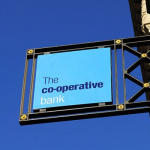Documents drawn up by Clifford Chance for a special RBS committee dealing with the Libor scandal are protected by legal privilege, the High Court has ruled, holding that lawyers must be able to give their client candid factual briefings as well as legal advice secure in the knowledge it will not be disclosed without client consent.
The issue arose in a dispute where the Property Alliance Group (PAG), alleged RBS induced it to enter four interest swap rate agreements between 2004 and 2008 that employed sterling Libor as a reference rate and ‘implicitly misrepresented that it was not rigging the relevant Libor rate’. RBS has admitted it was involved in rigging the Japanese Yen and Swiss Franc Libor rates and consequently paid fines of about £700m but has denied misconduct in the setting of any sterling Libor rates.
In June, Justice Birss ordered disclosure relating to all Libor currencies rather than just sterling Libor, around 25 million documents. He asked that a higher court decide whether RBS’s claim to legal privilege should be upheld.
In order to focus the disclosure exercise, it was suggested that RBS disclose ‘high level’ internal reports, relating to the allegations of Libor misconduct. These included documents produced by CC for RBS’s Executive Steering Group (ESG) which was advised by the firm which would sometimes take the lead on the group’s meetings.
RBS said all high-level documents produced by CC were expressly marked ‘privileged and confidential’ and therefore not subject to disclosure.
Justice Snowden agreed, and ruled in this case that ‘Clifford Chance did not organise or attend the ESG meetings simply, or even primarily, to provide administrative support to the ESG.’
‘The ESG meetings all had a very substantial legal content and it is no surprise that the lawyers present led the discussions. They were doing so because they were handling the many regulatory investigations and claims in different jurisdictions on behalf of RBS, and the ESG meetings were being held so that the lawyers concerned could give information and legal advice to the members of the ESG.’
‘The lawyer must be able freely to communicate that information to his client to enable the client to make a fully informed decision as to what further legal advice to obtain, and what to do. If the lawyer was concerned that his communications might be disclosable to third parties without the client’s consent, he would be most unlikely to commit such matters to paper, with the inevitable risk of misunderstandings as to the facts, the legal advice given, and the decisions taken.’
Cooke, Young & Keidan instructed Brick Court Chambers barrister Tim Lord QC who acted for PAG alongside XXIV Old Buildings barrister Adam Cloherty, while Fountain Court Chambers Queen’s Counsel David Railton was instructed by Dentons for RBS.
sarah.downey@legalease.co.uk










